Spoilers, The (1942)
“The law is working in 45 states — it ought to work in Alaska.”
|
Synopsis: |
|
Genres, Themes, Actors, and Directors:
Review: Given that we know who will triumph in the end, there aren’t many surprises in the narrative: the tension lies in getting there, and watching Dietrich struggle to accept the dictates of her heart, ultimately demonstrating her moral superiority over her romantic rival (though the final duke-’em-out scene belongs to Wayne and Scott). Note: The demeaning portrayal of Dietrich’s African-American maid (Marietta Canty) is unfortunate, though sadly commonplace for the era. Canty was typecast as a maid in Father of the Bride (1950), A Streetcar Named Desire (1951), and Rebel Without a Cause (1955), among others. Redeeming Qualities and Moments:
Must See? Links: |
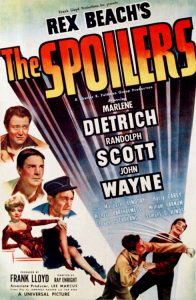
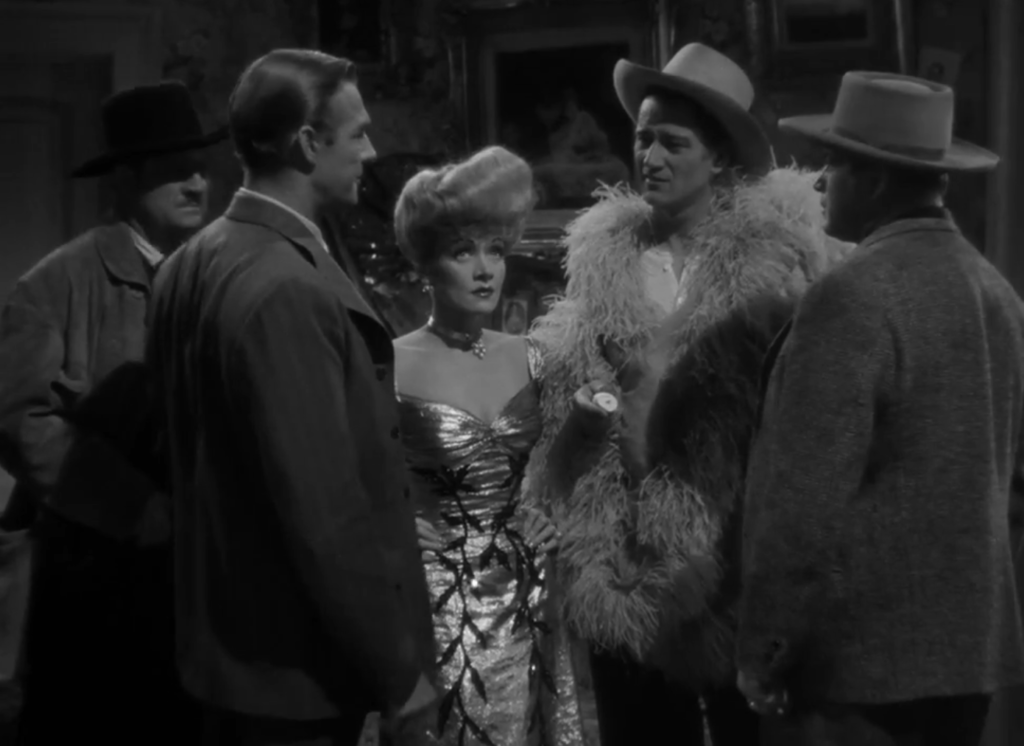
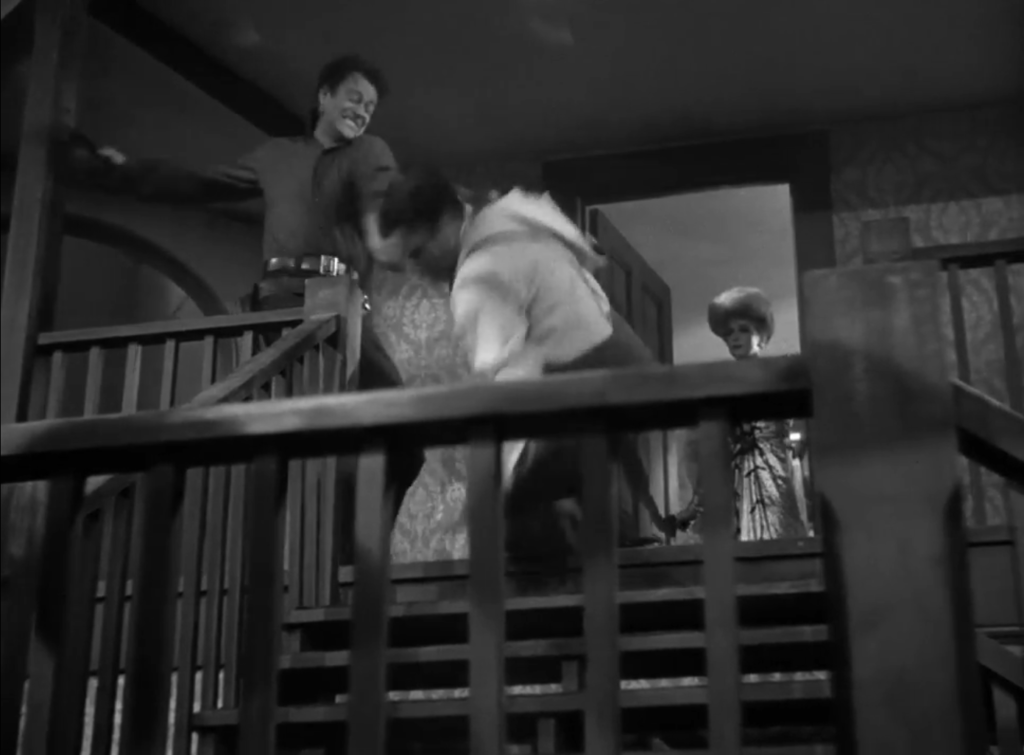
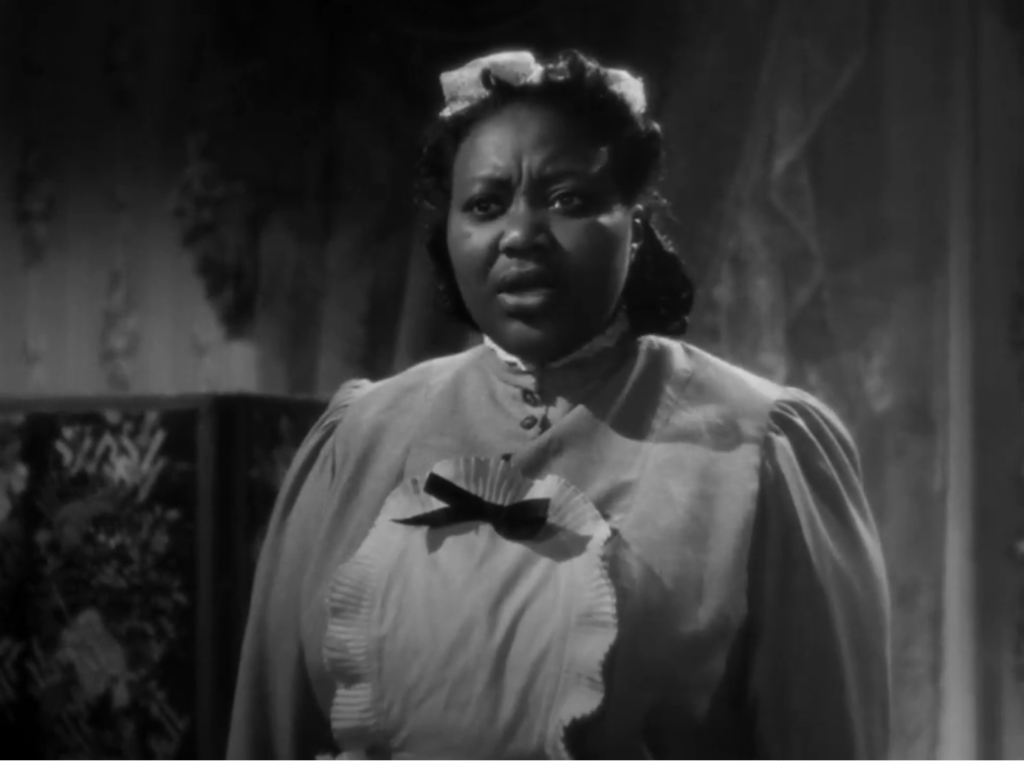
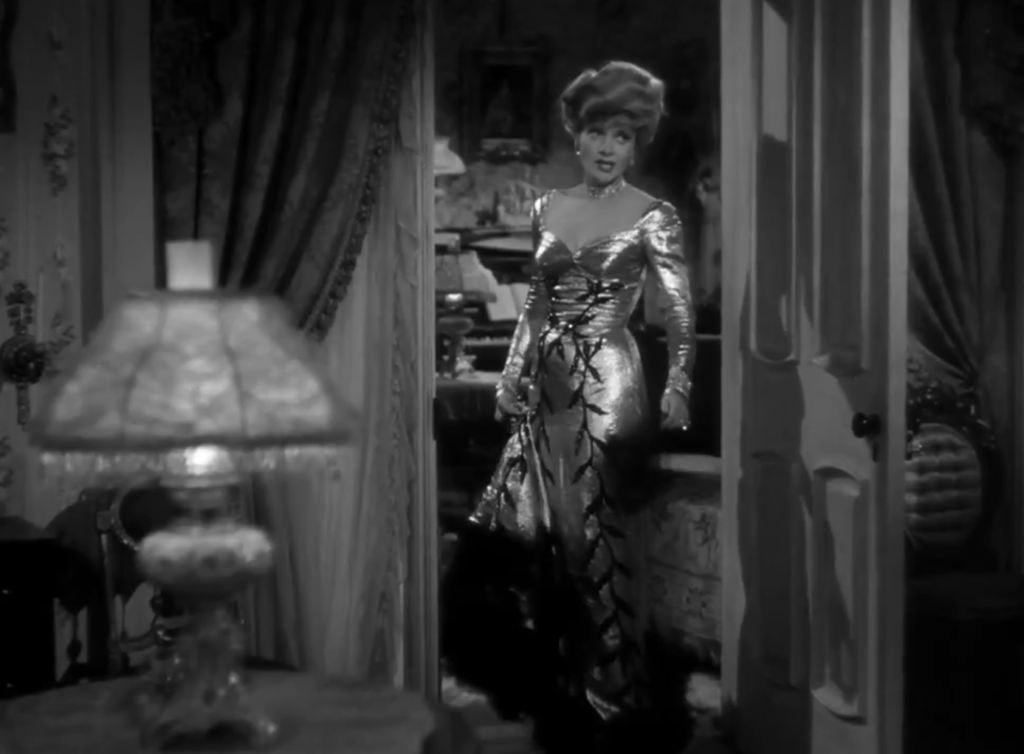
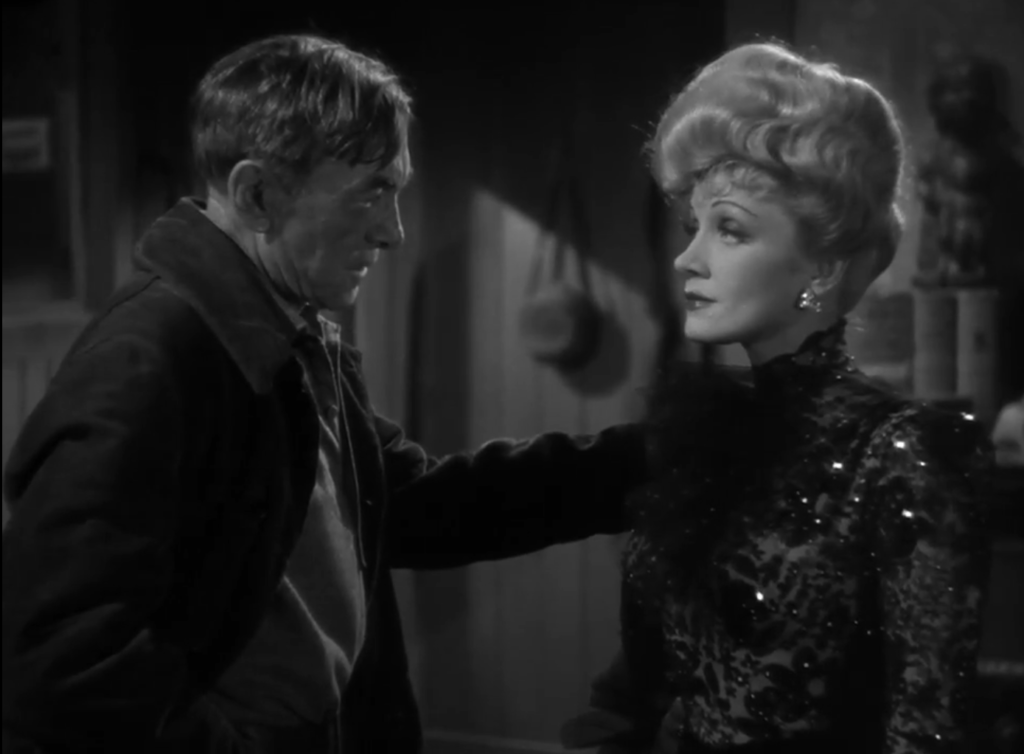
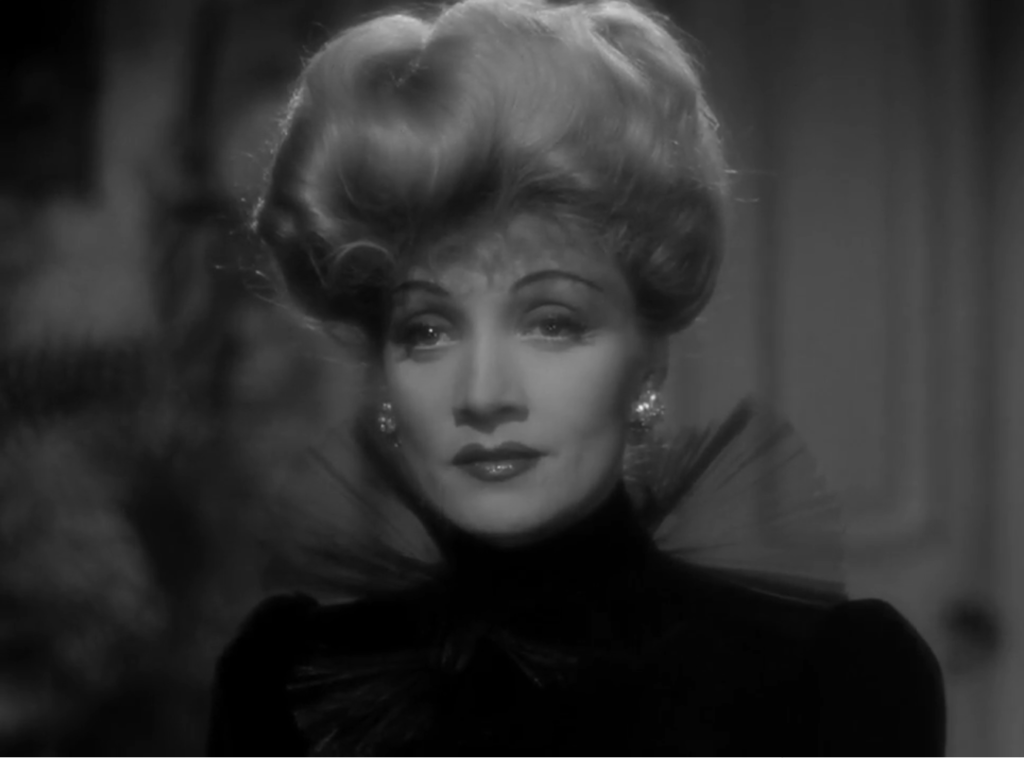
One thought on “Spoilers, The (1942)”
First viewing. Not must-see – however, it does get an honorable mention for the complications in its rather tight plot construction, which give the film more impact as the story progresses. The film may start out slow but that doesn’t last long.
Occasionally, some of the dialogue sounds a little strange – when characters say too much in their exchanges, to the point where they sound unnatural (sounding like writers, not people), and less said would have been more effective.
Thanks to Ms. West, Dietrich gets to change (usually) luxurious outfits from scene to scene. (There is one almost-plain outfit that Dietrich wears at least three times, however. Gee, why the penny-pinching at that point?!) It’s not unusual for female stars to get such ostentatious treatment but occasionally Dietrich simply seems way over-dressed.
[Camp sidebar: At one point, Wayne appears in Dietrich’s bedroom, playfully (and fully) adorned in one of her frilly, froufrou dressings. Is this the only time Wayne was seen in drag? Very amusing.]
Although Ray Enright was not an A-list director, he did rack up 77 credits…and it seems a lot of them were westerns, which would explain the particularly effective period atmosphere he exhibits in this film.